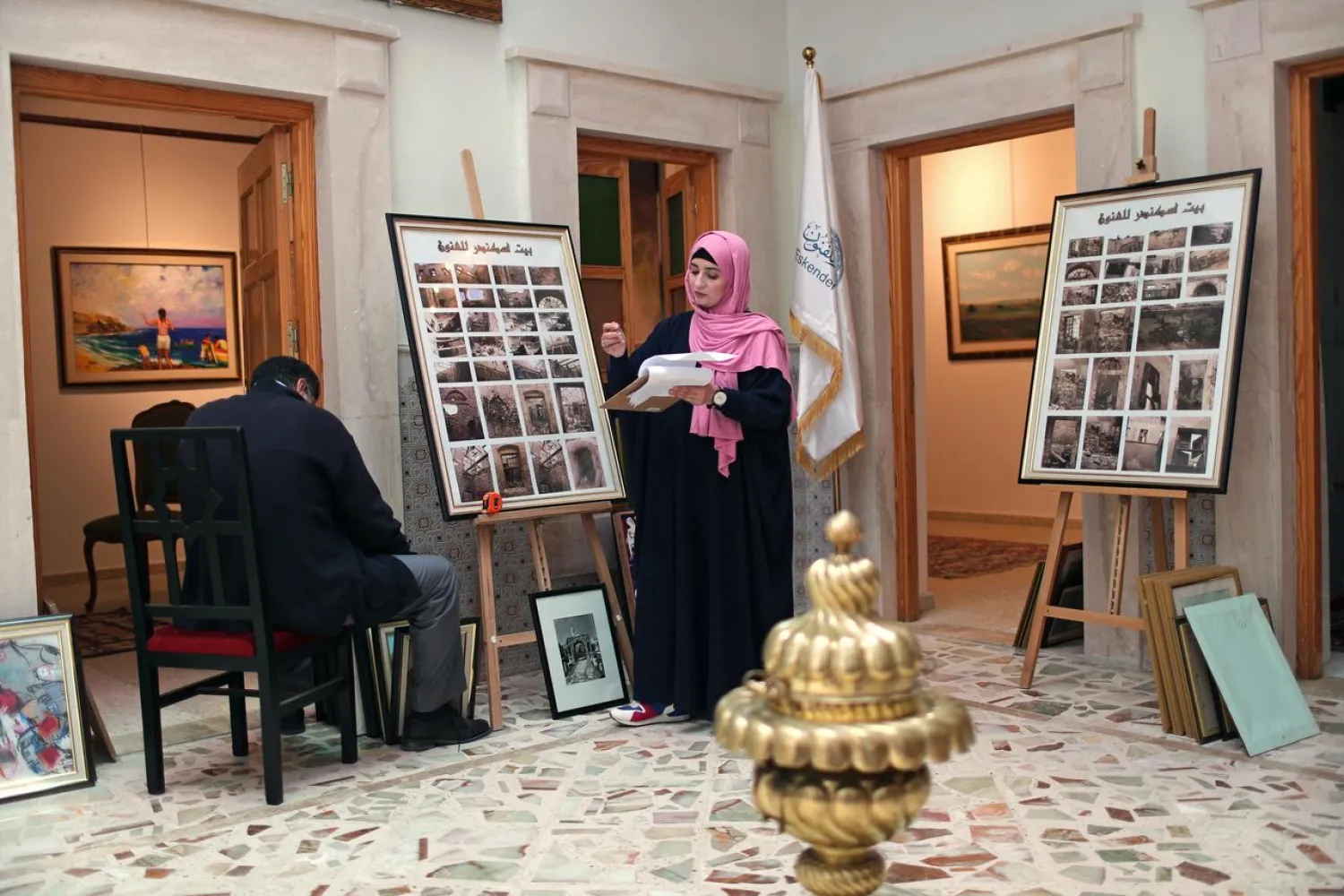As a new conflict reached the Libyan capital, businessman Mustafa Iskandar opened an art gallery and cultural center, hoping to draw attention to a long-neglected old city in need of revival.
One of the best preserved in North Africa with monuments going back to the Romans, Tripoli’s old city has been rundown for years, with garbage filling the narrow streets and its ancient white buildings in dire need of repair, said a Reuters report Thursday.
Most Libyans who can afford it have long moved out of the old city to more modern districts of Tripoli, home to 2.5 million. But Iskandar bought a derelict house close to the landmark Roman Mark Aurelius arch, investing one million dinars ($720,000) to refurbish it as a gathering point for artists.
He sent an invitation to embassies and artists but in the end diplomats did not come, having fled the city as the Libyan National Army launched earlier this month an operation to liberate the capital from terrorist and criminal militias.
It didn’t dampen the enthusiasm of the businessman, who still lives in the old city, a settlement once inhabited by Ottomans and later Italian colonialists, with Muslims, Jews and Christians living for centuries in harmony.
“I want to give a signal for people to come back to the old city where I grew up and still live,” said Iskandar, who works for a Danish firm.
He hung paintings and moved in old furniture collected for years in Europe for his center, which is located next to a hotel that was once bustling with tourists who used to come to Libya until Moammar al-Gaddafi was toppled in 2011.
Under Gaddafi, authorities restored a handful of old buildings and were planning a larger rehabilitation project when the 2011 uprising broke out, stopping the work, said Reuters.
Little has happened since then, given the country’s chaos, but officials hope to reopen the national museum housed in the Red Castle from the Ottoman era, closed since 2015 over security concerns.
“We are trying,” said Mohamad Farraj Mohamad, the head of the museum’s antiquities department, when asked whether the museum will open next year after a rehabilitation.
For that, French experts who have been advising Libya on how to improve the exhibition need to be willing to come back once the fighting is over to help as the ancient authority lacks funding and expertise.
In the old city, a group of young people organize walks to explore sites and build ties with the remaining inhabitants, many of which are West African workers or poor Libyans.
Relying on their own funds and donations, they repainted a rundown wall in white, a small start for what they hope will be a rehabilitation in the future.
“We are trying to raise awareness of the heritage of the old city,” said Hiba Shalabi, founder of the #SaveTheOldCityofTripoli campaign. “We are building relations with people in old city and look up in archives information about history of houses.”









